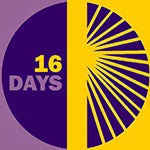DRC, Nepal, Papua New Guinea, and Rwanda Join Forces to Fight Sexual and Gender-Based Violence
Working on addressing and preventing sexual and gender-based violence (SGBV) in fragile and post-conflict areas is a challenging endeavor for government staff and NGO partners in the field.
In addition to dealing with complex issues in sometimes unsafe environments, our partners on the ground face a sense of isolation, often related to the sensitive issues they deal with, and manage a physically and emotionally draining workload.
The World Bank Global Platform on Addressing SGBV brings together our partners so that they can learn from each other, share best practices, and find common ways of overcoming challenges.
Observing participants interacting, I first knew the learning tour would be a success during the long bus trip from Kigali to Bukavu, on the sinuous road across the mountains and the rainforest between Rwanda and the Democractic Republic of Congo (DRC): participants started sharing cookies and passing around snacks they had brought for the trip, and Congolese medical doctors started teaching French to colleagues from Papua New Guinea.
Field visits and discussion sessions alternated, discussions were passionate, with participants fully engaged, and eager to learn and replicate best practices from other countries. For instance, the Nepal team is now in the process of replicating the DRC quality control mechanism to monitor the quality of services provided to survivors. The Papua New Guinea team is looking at adapting the one-stop center model visited in Rwanda, and DRC participants are envisioning to introduce an ICT-based case management system on the model of the ones in place in Rwanda and in Nepal.
The learning tour was also an opportunity to show support to our partners and to break their sense of isolation. A participant from DRC explained: “ I was really struck by the fact that domestic and sexual violence was so prevalent in other continents, and to learn that women over there suffer from the same kinds of violence and injustice as women in Africa.”
A medical doctor from DRC who performs reconstructive surgeries on rape survivors, told me one evening after dinner: “ I spend my days attending to one rape survivor after the other, with several arriving every single day. What affects me the most is seeing the wounds from violent sexual attacks on infants and children. This learning tour is a breath of fresh air, and a way to see that we are not alone in this fight, and that we can work together on trying to prevent this from happening in the first place.”
The learning tour also brought together government and NGO practitioners. For instance, a government representative from Papua New Guinea (PNG) indicated: “ Even though the community of people working on SGBV in PNG is small, I had never met my colleague from [participating NGO], this has been a great opportunity to get together and to strengthen future collaboration.”
After a very eventful week, the closing session took an emotional turn when a participant from PNG took the microphone: “ This was more than an academic exercise for me. This learning tour was a once in a lifetime experience that has allowed me to meet with exceptional people who work very hard to address SGBV all around the world, and this made me feel less alone in this fight. I now go back to my country with a sense of community and an even stronger motivation to continue this work.”
The Global Platform’s next learning tour is scheduled to take place in 2016, and we hope to continue bringing together and supporting our clients and partners in the important and challenging work they undertake every day.
(The first learning event of the Platform in March 2015 brought together (in eastern Democratic Republic of Congo (DRC) and in Rwanda,) Bank teams, government representatives, and NGO partners, from DRC, Papua New Guinea (PNG), and Nepal, in collaboration with the UK Department for International Development (DfID), Care International, the International Rescue Committee, and the World Bank funded Great Lakes Region: Emergency Sexual and Gender Based Violence and Women’s Health project.)



Join the Conversation